like a swan swaning on the water
Surrounded by the sound of water breaking on the wooden houses along the Mekong River. These reassuring sounds are as commonplace as street noises for people from big cities while the gentle breeze carries the scent of an incredible expanse of blue water and the taste of freedom.
Born and bred in Cambodia, people with a Vietnamese immigrant background are discriminated in everyday life among not being recognized as a Cambodian citizen. In floating villages in Kampong Chhnang, where the ethnic Vietnamese live in a sleepy Cambodian province, they are sellers and dealers. As fishermen, they earn their living. Their children are not issued have birth certifications. Without a graduation from school, they are forced
to take on the work of their family.
A never ending circulation; and yet this is where they feel at home.
WEB DOCUMENTARY
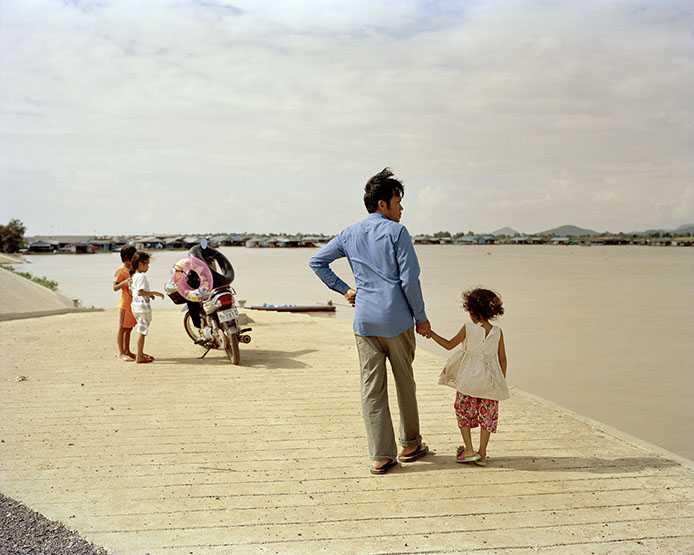
Chang Kos is likely to be the largest floating village in South-East Asia on the Tongle Sap lake in Cambodia´s Kampong Chnnang region.
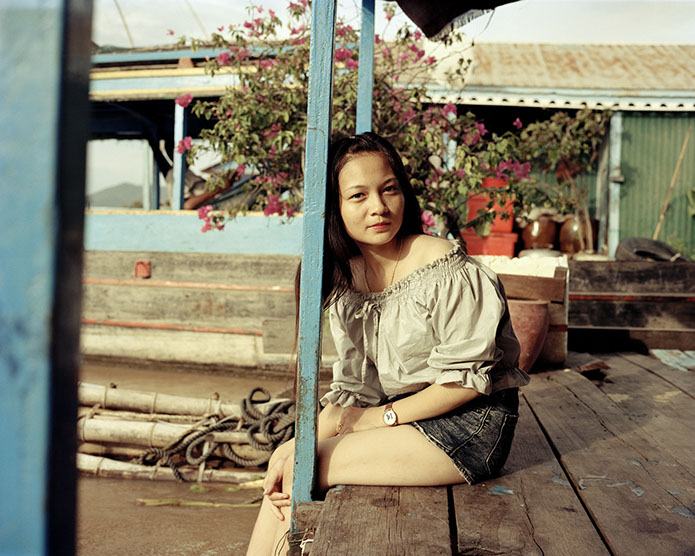
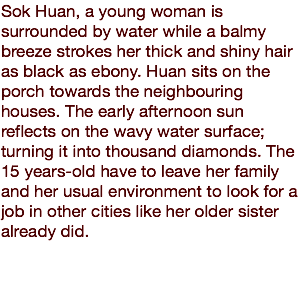
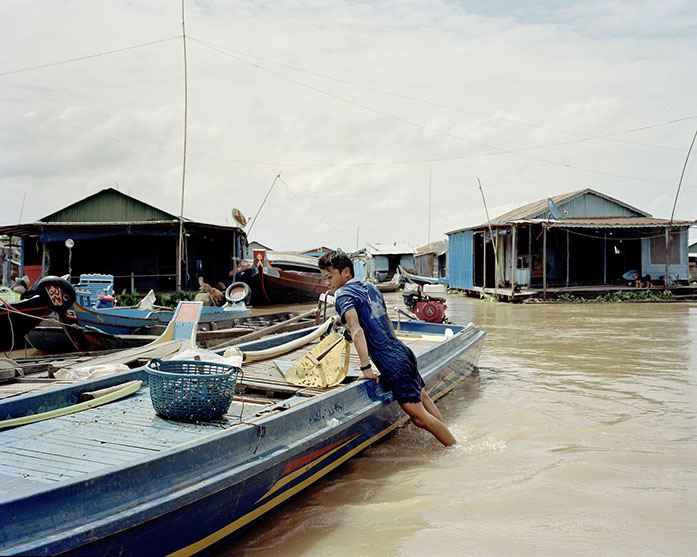
The youngest of three children, Kha is 14 years-old and the only son. He‘s shy and seems to do not speak that much while his Khmer has an accent that clearly shows his Vietnamese heritage; the floating villages in their own community without any contact to the Khmer people, unless when they are selling their fish on the market.
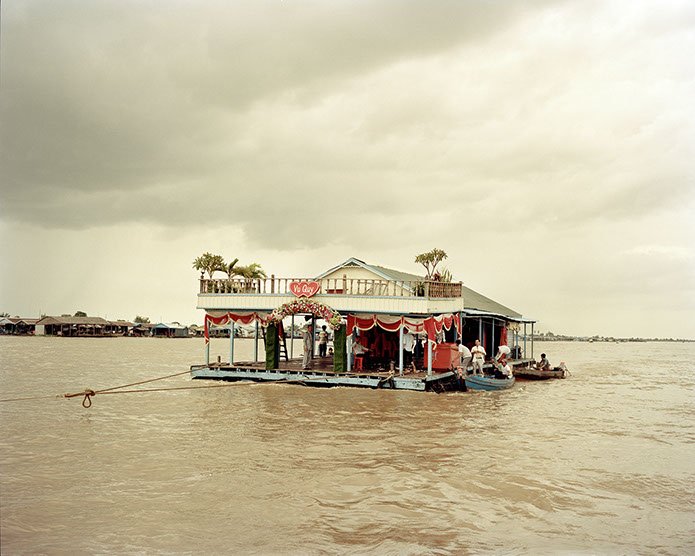
The lake and river are a major source of income for hundreds of thousands of people.
While water is more of an obstacle to most other people, it connects the village community on the Tonle Sap River with their special relationship to water. The omnipresent motor - rowingboats are an integral part of the daily life.
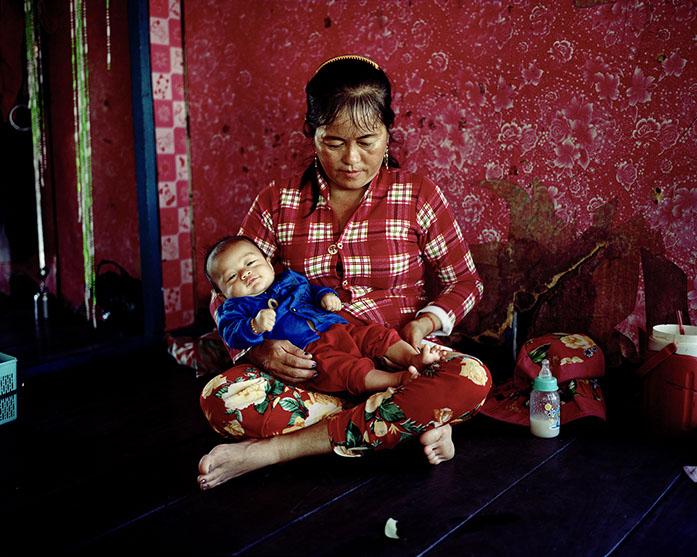
A rose-red patterned blouse and trousers imprinted with big yellow roses matching with the bright flowerly wallpaper behind her. Since their wedding day, adorns the pattern the narrow wooden walls. Tynnga came at the age of 16 to the floating village on the Tongle Sap river in Kampong Chnnang. She remembers coming with her family by boat, upstream over the river Mekong from Vietnam to the Cambodia; the natural gateway in Southeast Asia. It took them two days to reach the village Chang Kos when they left their home in Cần Thơ. Ever since, she is living side by side with her husbands parents.
These days, the 38 years old mother is taking care of her first born grandson of her oldest daughter. Like many others her daughter decided to leave their homeland to seek their fortunes in the bigger cities in order to escape the lack of perspectives.
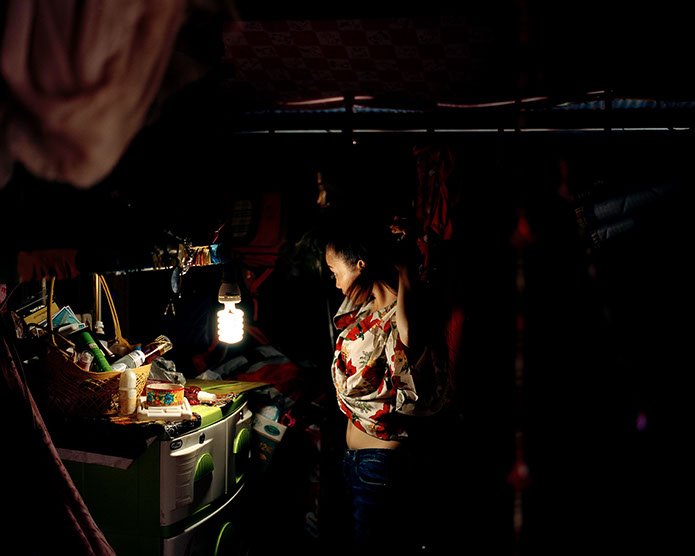
Privacy does ́t have priority. As blue as the sky, shiny wind resistance traps; yet not thick enought to keep the noises inside the tiny wooden houses, gives the feeling of some privacy and replacing walls although everything is visible in the open.
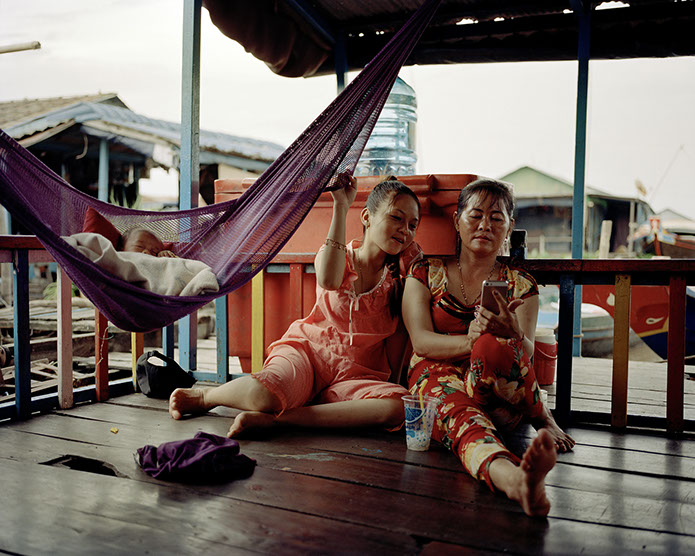
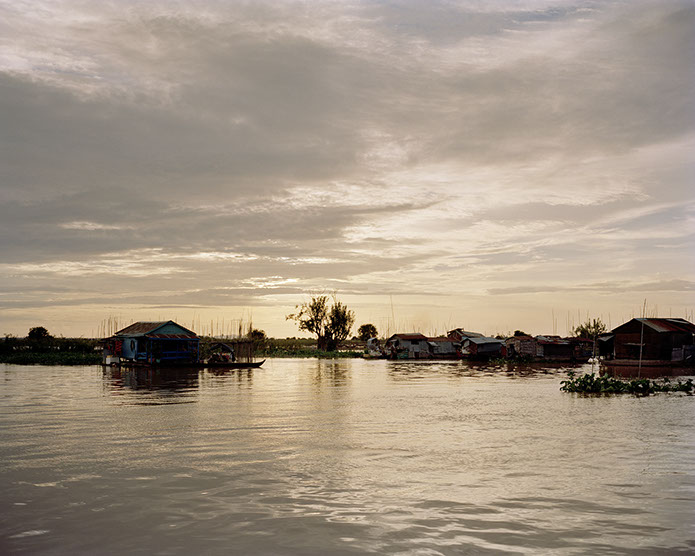


The sun is breaking through the clouds above the Tonle Sap River after a stormy
afternoon with gusts of rain which is usual for the rainy season in Cambodia while dogs are shouting and yelling in the background.
He spents his days helping his father; getting up early in the morning befor the sunrise lits up the dark night sky while driving with the small rowingboat to the fish market; big enough for three adults.
And that is exactly what they do - day in, day out - because, they can´t find a job. They can find a job unless they have an indentification card while without birth certifications. and a graduation from school, they are forced to take on the work of their family; fishing.
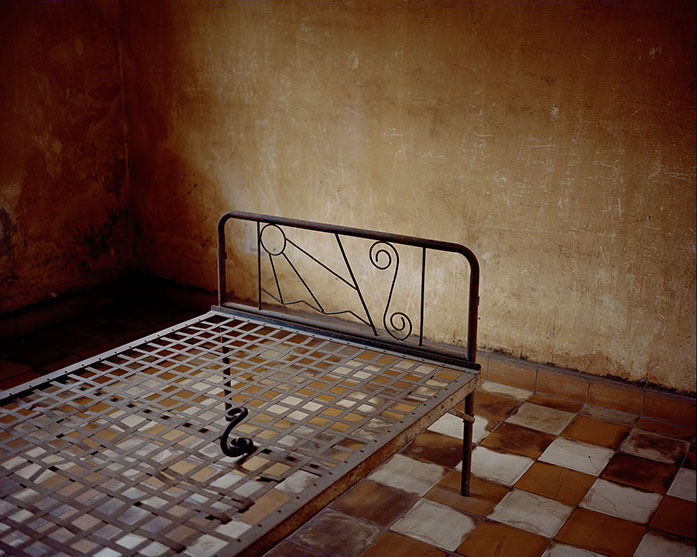
A soft light is shining through the window. A steel bed frame with shackles at each end is the rooms only piece of furniture. Different shades of yellow as similar as wild mangos are reflecting from the wall and floor; from time to time darker or brighter. “Hillock of the wild mango” is the literal meaning of that unimpressive place; Tuol Slang - Pol Pot‘s secret prison, codenamed „S-21“. From the outside not many things suggest that in the former school as many as 30,000 prisoners were held before the Khmer Rouge leadership was forced to flee, in the first days of 1979 while only seven survived.
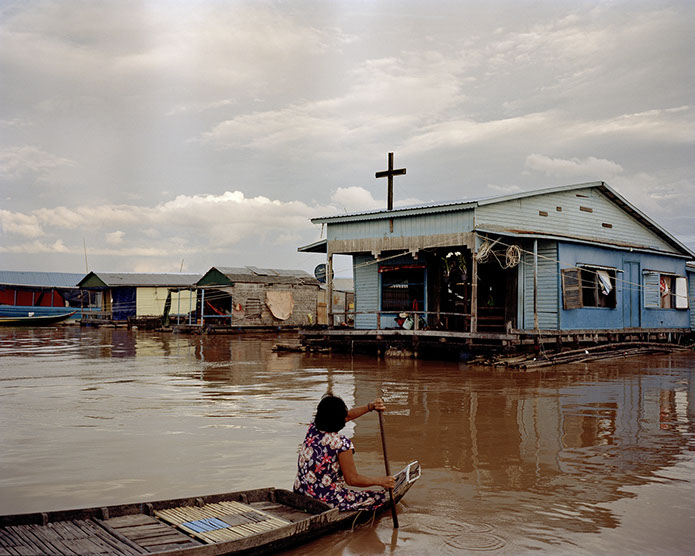
Builed from bamboo; 2000 Houses of 8000 people are tightly packed together while the majority of the citizens are ethnical Vietnamese fisherman, living there for
several generations while throughout Kampong Chhnang, there are more than 3,000 families living on the water.
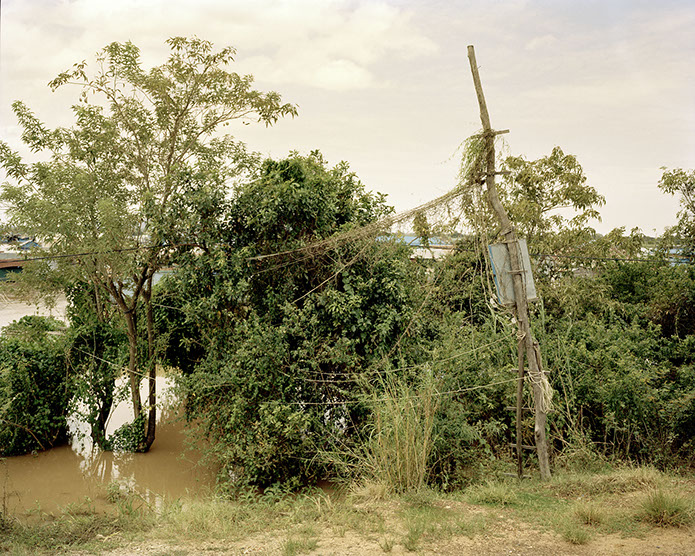
People living in floating houses around Kampong Chhnang will have to move to live on dry land provided by provincial authorities, according to a notice from Kampong Chhnang Provincial Hall on September 24, 2018. The relocation will take begin from October 1, 2018. In the province’s 5-year plan, all floating houses in Kampong Chhnang’s Chong Tong district, Boribo district, and Koh Thuc commune, Peam Chak, Chakryi District, Seab and Tesach Districts in Kompong Tralach and Kampong Leng District. The houses were set to be moved in 2019, but due to the favorable water
situa- tion this year, the floating houses will be dragged to a prepared location and will remain when water levels fall gradually. in an effort to curb water pollution.
Provincial governor Chhour Chan Dern says that a floating village in the Phsar Krom area in Kampong Chhnang City will be relocate at first as a model in order to clean up and develop the waterfront area.
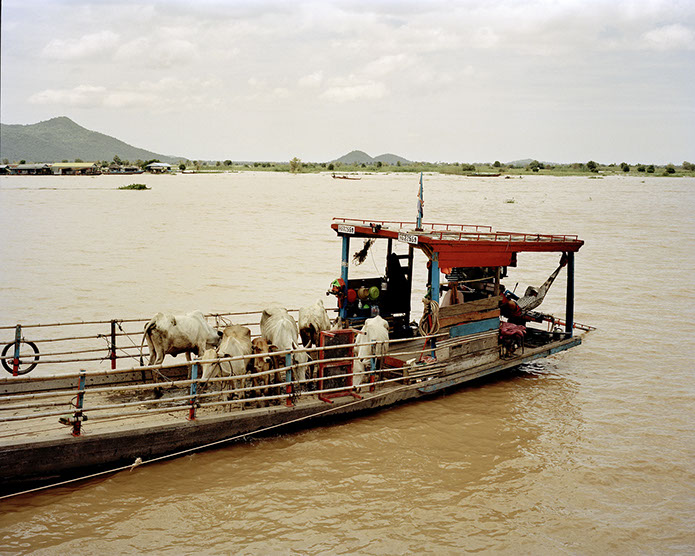
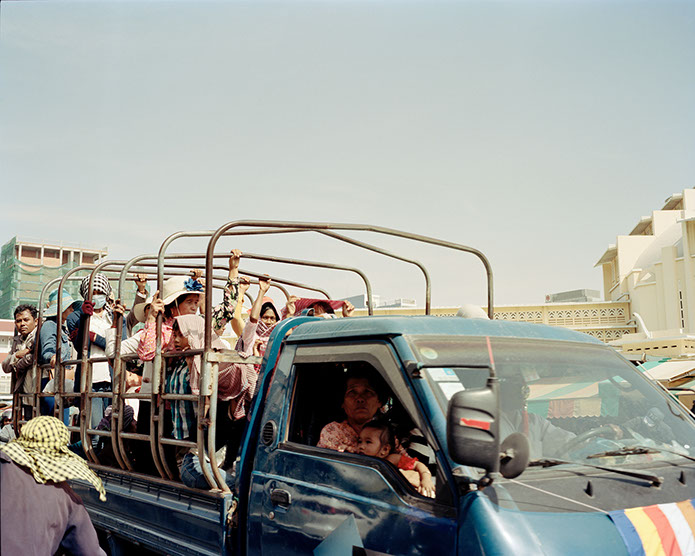
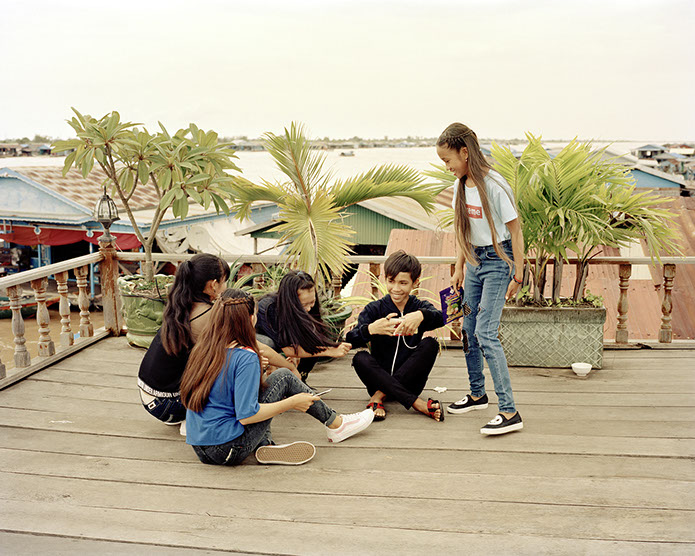
Like many other kids in the floating village, his future is uncertain. The lack of prospects and hopelessness is the result of being discriminated in everyday life among not being recognized as a Cambodian citizen. Without any legal documents like an identification card and birth certification, they are not allowed to attend the school. Without a graduation from school, they are forced to work as fishermen to earn their living and to take on the work of their family like those kids; although he is born and bred there and the vietnamese community lives in Cambodia for over five generation.
2.jpg?crc=3826044382)
Everything ends up in the freshwater Tonlé Sap lake and river, which merges with the Mekong further downstream in Phnom Penh, the capital.
Although the village community on the Tonle Sap River has a special relationship to the river, the water has its dangers while the most common cause of infant death is
diarrhea; including accidents and drowning why most children under 5 wear life jackets when their parents can afford them when they go around the edge of their houses to defecate – and they drown.
The children playground extends on the outside terrace of the wooden houses among
the small boats parking next to the houses.
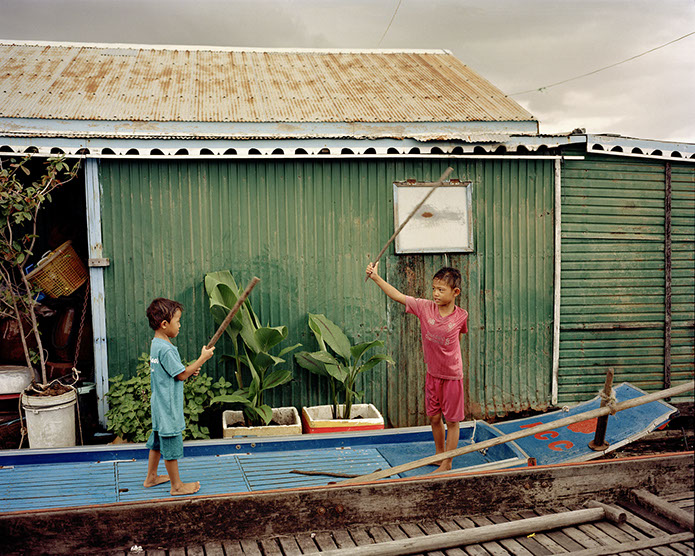

Most Cambodians with a Vietnamese immigrant background in the country continue to feel that they are Vietnamese. They refuse to give up hope that someday their Cambodian identity will be accepted in the country they call home while people with a Vietnamese immigrant background are discriminated in everyday life among not being recognized as a Cambodian citizen; both in in the city and rural area of Cambodia.
The Vietnamese are still seen as enemies because

Beijing‘s rising influence in Cambodia reflects the cityshape in Phnom Penh, the capitol. In recent years, the face of Phnom Penh has been rapidly. With the help of China, Cambodia is building roads, bridges and dams; this is undoubtedly positive for the country.
